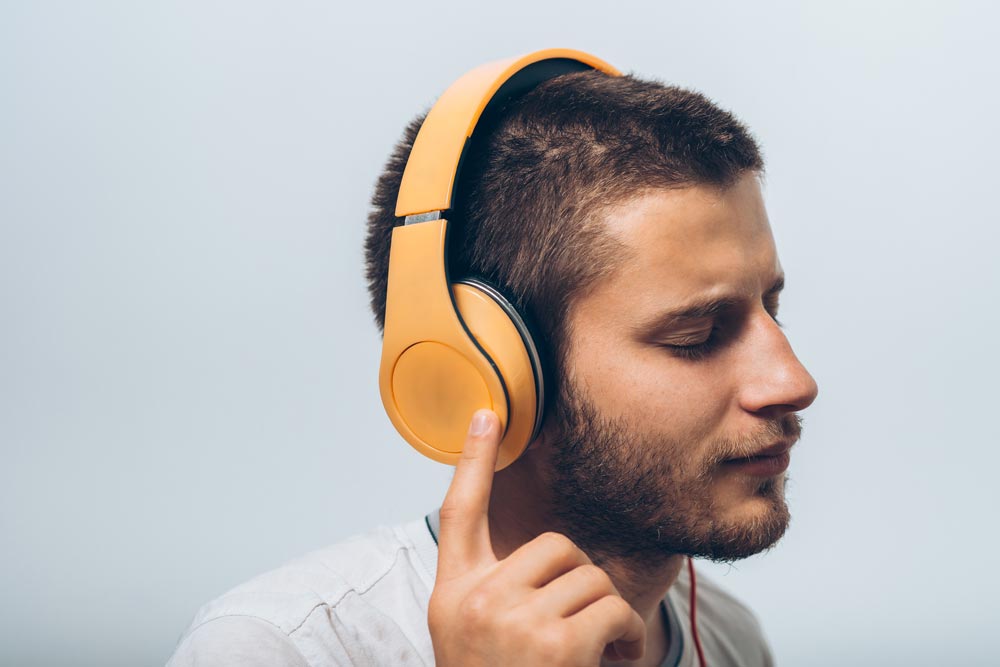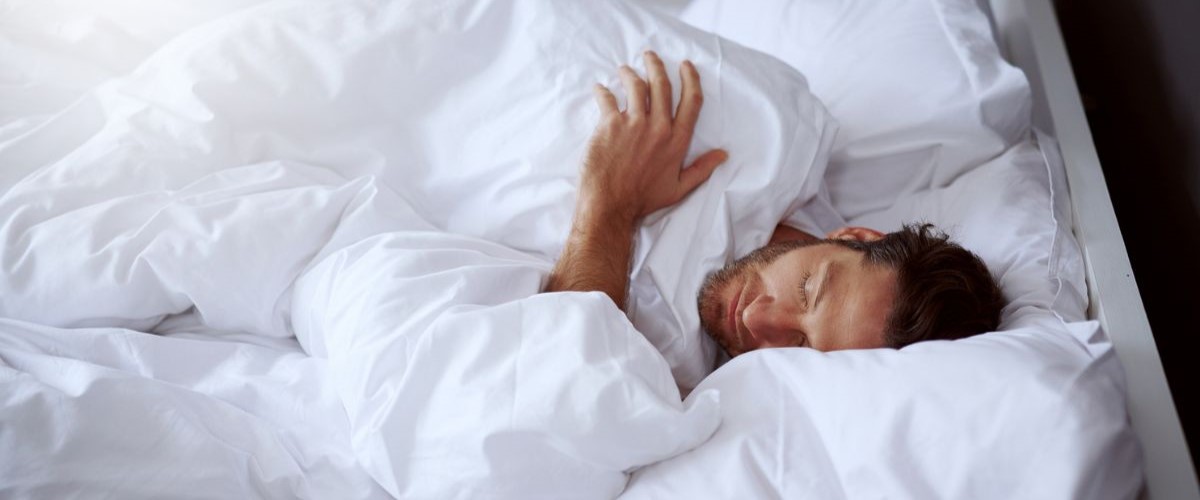7 surprising ways to look after your hearing
With tinnitus and hearing loss on the rise in the UK, health writer Rosalind Ryan shares seven simple ways to protect your hearing now and in the future.

Hearing loss and ear health isn’t just a concern for older people. The World Health Organization recently warned that 1.1 billion teenagers and young adults are at risk of hearing loss, as a result of noise in recreational settings.
And about 30% of people will experience tinnitus at some point in their lives, with 10% of the UK currently suffering from persistent tinnitus.
The bad news is once your hearing is damaged, it’s very hard to repair. The good news is you can take steps to protect it that don’t involve giving up your headphones.
Listen within safe levels
Noise is measured in decibels (dB) and listening to anything over 85dB for long periods can cause hearing loss, tinnitus or both.
“All devices sold in the EU have a limit set at 85dB, but users can override that to turn the volume up,” says Gemma Twitchen, a senior audiologist for charity Action On Hearing Loss.
Try following the 60/60 rule: experts recommend listening to music for no longer than 60 minutes at a time with a break of 60 minutes each time.
Use protection
“There’s a misconception that ear plugs will stop you enjoying a concert – but you can still hear the music, just without damaging your hearing,” says Twitchen.
“It’s like wearing sunscreen; you can still go out in the sun but it gives you a layer of protection.” Take your ‘noise exposure’ into account too.
“Think of noise like a radiation dose; you don’t want to over-do it. If you’re working in a noisy coffee shop during the day, then going to gigs at night, wearing ear plugs will help reduce your noise exposure,” advises Dawn Clare, Head of Audiology at The Royal National Throat, Nose and Ear Hospital.
Tune out noisy traffic
An investigation by the BBC found that some sections of the London Underground were loud enough to damage your hearing, reaching 109dB on certain lines.
While you can’t control the sound of trains or revving cars, you can control how much of that racket reaches your ears.
“Noise-cancelling headphones are really beneficial,” says Twitchen. “They reduce the ambient noise around you, so you don’t have to turn up the volume of your music or audiobook to hear it above the traffic.”
Ban the cotton buds
Cleaning your ears out with a cotton bud is one of the easiest ways to damage your hearing.
“Skin grows out from the middle of the eardrum and along the ear canal. This naturally pushes out debris and wax. But when you use a cotton bud, you push that debris and wax back in,” says Clare.
The ear canal also has less layers of skin than skin elsewhere on the body so you’re more likely to scratch it, leading to infection. “Use a few drops of warm olive oil to help disperse ear wax instead,” says Clare. “Clean the outer ear with a flannel in the shower.”
Make time to de-stress
Did you know that hearing loss and stress are inextricably linked?
A study by the University of Göttingen found that patients suffering from sudden hearing loss and/or tinnitus were also suffering from high levels of stress.
It’s thought that stress restricts blood flow to the inner ear, damaging tiny hair cells in the cochlea and affecting your hearing.
Swedish researchers have also discovered that those with hearing problems are more likely to suffer from stress-related symptoms such as poor sleep or low self-esteem. Beat stress by building some relaxing activities into your day, such as yoga or mindfulness.
Keep your ears in check
If you work in a noisy environment, such as a factory or building site, your employer has a duty to protect your hearing, including regular hearing tests.
But what about the rest of us? “If you’re worried, see your GP who can arrange a hearing test for you and rule out any underlying issues such as impacted ear wax,” says Clare.
Those with a family history of hearing problems should also get tested regularly. You can test yourself on the Action On Hearing Loss website.
Listen to your loved ones
Because hearing loss is gradual, you may not notice any symptoms – but your friends and family will. “They may have to keep repeating things to you, or tell you that the television volume is too loud,” says Twitchen.
Some people delay getting tested for up to 10 years, but by then your hearing may be too damaged to take action.
“There’s still a stigma attached to hearing loss and getting hearing aids, but there are some discreet, high-quality ones available on the NHS now,” advises Twitchen.
As a Vitality member, you could get access to a Vitality Healthcheck.
Available with eligible health and life insurance plans. Log in to Member Zone for the details.
At Vitality, we encourage our members to make small positive lifestyle choices that make a big impact. That’s why we offer partner benefits and rewards through the Vitality Programme.
Find out more by downloading the Vitality app or visit vitality.co.uk.
Recent articles

Get the Zs you deserve: 6 common sleeping myths put to bed
Could falling for a common sleep myth be where we’re going wrong? This World Sleep Day, we’re setting the record straight so that you get the best from the land of nod

What’s increasing your risk of cancer?
Getting cancer isn’t always down to our genes or simply bad luck, unhealthy lifestyle choices can also play a part. Journalist Sally Shore discovers some everyday factors that increase our risk and how to combat them

How to spot the signs of ovarian cancer and detect it early
Ovarian cancer is too often diagnosed late due to its ‘silent’ symptoms. This Ovarian Cancer Awareness month, we explore ways to prevent ovarian cancer and detect it early
